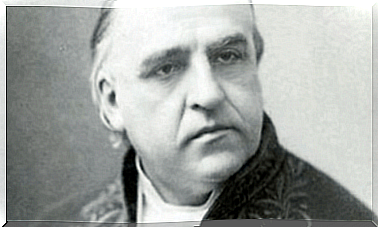Getting Up: The Hardest Time Of Day For Those Suffering From Depression

The anatomy of depression is different, unique and unique to each person. Despite this, in the midst of these terrible and dark private labyrinths, there is an element that coincides: the symptoms of this disease are devastating in the morning, when the day begins and the person suffering from depression feels without strength, without cravings, lifeless…
People who suffer from this disorder, in any of its variants (serious depression, dysthymic disorder, associated with pain …), all agree on a very widespread idea. They would all like to suffer from any other disease in which the symptoms are more visible, even physically … At least, the suffering would be more evident and they would receive a little more understanding from others and solidarity in the looks of others.
Saying, for example, a simple phrase like “I am unable to get out of bed in the morning” can be a clear clue to the psychologist or primary care physician of what the person is going through. Despite this, in the eyes of work colleagues, friends or even family, such a phrase can be interpreted as a lack of will to do, laziness or even as an excuse for not taking on one’s personal and work responsibilities.
It’s not easy. The depression is very similar to the impact that would have a cyclone destroys and change anything. Most of the processes that occur in our body are slowed down, change the metabolism, the perception of reality and the neurochemistry that triggers the so-called “change in daytime mood”.
We tell you about it in our article today .

Good morning depression, you are next to me again
Antonella is 46 years old and, right now, she is suffering from a new relapse, although two years ago she was able to overcome her depression successfully thanks to drugs and psychotherapy. She herself was able to identify the return of this horrible shadow that weighs on her life thanks to a precise element: it was more and more difficult for her to get up in the morning, every day her mood took the path of apathy and negativity until, in the end, he realized it: the depression was back.
The known enemy has a much more intense presence during the early hours of the day following a series of very specific processes and circumstances. Let’s see what they are:
-The change in daytime mood is characterized by an awakening full of negative feelings, dejection and great physical fatigue which, in general, improve slightly with the passing of the hours.
-As several studies tell us, most people with depression have an altered circadian rhythm. The body either releases insufficient amounts of different hormones such as melatonin and cortisol, or does it at the wrong time. This causes the person with depression to suffer from insomnia or even suffer from sleepiness during the day.
-The alteration of circadian rhythms in depressed people can be the cause of an increased feeling of cold in the morning, of low or non-existent energy levels or even the inability to react to certain stimuli due to a low level of attention.
To all this we must also add another even more devastating feeling, namely the clear feeling of not being able to face the day that has just begun. This vulnerability and the security of not being able to handle one’s responsibilities further increase the feeling of completely losing control over one’s life.

How to face the toughest moment of the day
Let’s go back for a moment to our protagonist Antonella, this woman who, at the moment, has to deal with a new depressive cycle that she had not foreseen and that she did not expect to have to face again. Although depression is an old acquaintance of hers, Antonella immediately goes to a specialist, first of all, to be prescribed the most suitable drug for her specific case.
One thing we need to remember clearly is that people who have more intense symptoms early in the day need treatment that helps them regulate certain neurotransmitters that alter their circadian rhythm. In addition to drug treatment, Antonella has adopted a series of daily habits that will allow her to cope with her illness much better.
Here’s what they are.

Tips for dealing with the morning symptoms of depression
First of all, it should always be remembered that both interpersonal therapy and cognitive-behavioral therapy can be very useful in combating this disorder to which no one is immune.
Our protagonist decides, first of all, to go to the family doctor to get a diagnosis. He knows that very specific problems, such as thyroid dysfunction, low vitamin B12 levels, or even liver difficulties can cause or worsen that morning lack of good mood and energy.
-At this point, Antonella establishes a routine and starts her day with some morning stretching. As soon as she gets out of bed, in her room, she does 10 minutes of light yoga. After that, she forces herself to take a shower and get dressed.
-The next step is so simple and therapeutic: Antonella has someone who calls every morning by phone to give her strength and fill her with desire and energy. In his case, it’s about his mother . We all can count on a friend who is always ready to support us, a brother or a loved one who can help and motivate us.
-At this point, Antonella has breakfast calmly and without haste. She hardly ever feels like it, but she forces herself to eat something because she knows the brain needs that morning charge of energy to function better.
-Finally, but not least, dedicate some time to meditation. It takes 15 to 20 minutes. It is an incredible moment of connection with yourself thanks to which you can better manage your thoughts and negative emotions. In this way, our protagonist gets a little more internal calm, peace and motivation to face the challenges of her day little by little.
We are sure that these simple tips will be very useful to you too.









